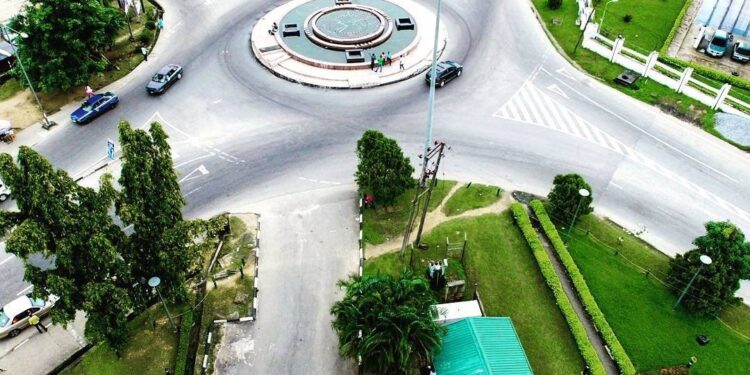Cross River State, situated in the South-South geopolitical zone of Nigeria, is a region of diverse landscapes, vibrant cultures, and a rich historical heritage. Named after the majestic Cross River that traverses its territory, the state holds a significant place in Nigeria’s history and is renowned for its natural beauty, ethnic diversity, and economic potential.
History
Cross River State came into existence on May 27, 1967, following the division of the Eastern Region. Originally known as the South-Eastern State, it was later renamed Cross River State in 1976. The state was initially part of the Eastern Region and witnessed the Nigerian Civil War, during which Calabar, its capital, became a battleground. Cross River State has since seen various governors and administrators, contributing to its growth and development.
Geography and Climate
Cross River State spans an area of approximately 20,156 square kilometers, bordering Benue, Ebonyi, and Abia states to the north and west respectively. Its eastern border forms part of the national border with Cameroon, while the Atlantic Ocean lies to its south. The state features diverse geographical regions, including the Guinean forest-savanna mosaic in the north and the Cross-Sanaga-Bioko coastal forests dominating the interior. The Central African mangroves in the coastal south and a portion of the montane Cameroonian Highlands forests in the extreme northeast add to the state’s ecological richness. The Cross River, Calabar River, and Great Kwa River are significant water bodies that enhance the state’s beauty and provide vital resources.
Cross River State experiences a tropical climate, characterized by high humidity and average temperatures ranging between 15°C and 30°C. However, the climate varies across the state, with regions like the high plateau of Obudu recording cooler temperatures due to the area’s higher altitude. The state receives substantial rainfall throughout the year, with Calabar, the capital city, witnessing a notable amount. The annual rainfall in Cross River State averages around 3,306mm (130.2 inches).
People and Culture
Cross River State is home to several ethnic groups, each with its unique language, traditions, and cultural practices. The major ethnic groups include the Efik, Ekoi (Ejagham), Akunakuna, Boki, Bahumono, Yakö (Yakurr), Bekwarra, Ogoja, Bette, Igede, and Ukelle. The Efik people dominate the southern riverside areas, while the Ekoi people inhabit the inland south. The state’s central region is home to the Akunakuna, Boki, Bahumono, and Yakö communities, while the northern region comprises the Bekwarra, Ogoja, Bette, Igede, and Ukelle tribes. These ethnic groups have a rich cultural heritage, with historical ties to ancient city-states and strong connections to their ancestral lands.
Economy and Tourism
Cross River State boasts a diverse economy with a focus on agriculture, tourism, and fishing. The state is known for its agricultural produce, including crops like cocoyam, rubber, oil palm, yam, cocoa, cashews, and plantains. Fishing also plays a significant role in the economy, given the state’s access to rivers and the Atlantic Ocean.
The state’s tourism potential is immense, with various attractions drawing visitors from far and wide. The Cross River National Park, Afi Mountain Wildlife Sanctuary, and Mbe Mountains Community Forest are biodiversity hotspots housing numerous rare and endangered species. Wildlife reserves within the state are home to Preuss’s red colobus monkeys, African forest buffalos, bat hawks, tree pangolins, grey-necked rockfowls, West African slender-snouted crocodiles, and iconic species like the Nigeria-Cameroon chimpanzee, drill, African forest elephant, and Cross River gorilla. These reserves contribute to conservation efforts and provide opportunities for eco-tourism and wildlife observation.
Additionally, Cross River State hosts the annual Calabar Carnival, one of the largest cultural festivals in Africa. The carnival showcases the region’s rich cultural diversity, featuring colorful parades, traditional dances, music, and artistic performances. The Obudu Mountain Resort, known for its breathtaking scenery and amenities, is another popular tourist destination in the state.
With a favorable Human Development Index and a range of tertiary educational institutions, Cross River State strives to create an environment that fosters growth, education, and improved living standards for its residents.
Cross River State encapsulates the essence of Nigeria’s cultural and geographic diversity, offering a fascinating blend of history, natural wonders, and vibrant traditions. It stands as a testament to the nation’s unity in diversity, inviting visitors to explore its unique landscapes and immerse themselves in its rich cultural tapestry.
Religion
The people of Cross River State predominantly practice Christianity. The Catholic Church has a strong presence in the state, with the Archdiocese of Calabar, led by Archbishop Joseph Effiong Ekuwem, overseeing 51 parishes. The suffragan diocese of Ogoja, under the leadership of Bishop Donatus Edet Akpan, consists of 79 parishes. The Anglican Province of the Niger Delta also plays a significant role in the religious landscape, with the Diocese of Calabar led by Bishop Nneoyi O. Egbe.

Tourism
Cross River State is a treasure trove for tourists, offering a range of captivating destinations and attractions. The Cross River National Park showcases the region’s natural splendor, with diverse ecosystems ranging from the lofty plateaus of Obanliku to the lush rainforests of Afi. Visitors can explore the enchanting waterfalls of Agbokim and Kwa, marvel at the winding Calabar River, and discover landmarks like the Tinapa Business Resort, Calabar Marina, Calabar Residency Museum, and Calabar Slave Park along its banks.
Other notable tourist attractions include the Ikom Monoliths, a collection of ancient volcanic-stone monoliths whose exact age remains a mystery. The Mary Slessor Tomb pays homage to the Scottish missionary who made significant contributions to the region. The Calabar Drill Monkey Sanctuary is a sanctuary dedicated to the conservation of the endangered drill monkeys. Nature enthusiasts can embark on a thrilling walkway canopy experience in the Afi Mountain, while the Kwa Falls and Agbokim Waterfalls offer stunning natural beauty.
The Tinapa Business Resort is a popular leisure and entertainment complex that features a range of amenities, including shopping, hospitality, and recreational facilities. The annual Calabar Carnival, a grand event held during the Christmas period, attracts visitors from far and wide. It is a vibrant celebration of music, dance, cultural displays, and street parades, showcasing the region’s rich heritage.
Travelers can access Cross River State via the Margaret Ekpo International Airport in Calabar, which offers daily flights from Lagos and Abuja. Airlines such as Air Peace, Ibom Air, and previously Cally Air, operated by Aero Contractors, have served the route, providing convenient transportation options for visitors.
Cross River State’s commitment to tourism, its breathtaking natural landscapes, and its vibrant cultural festivities make it an enticing destination for eco-tourists, adventure seekers, and culture enthusiasts alike.
The Calabar Carnival.
Reputed to be Africa’s biggest street party, Calabar carnival is an annual event in cross river state which begin on every 1 December and last till 31 December, the Calabar carnival has boosted the cultural mosaic of Nigeria people while entertaining the millions of spectators within and outside Nigeria. No fewer than 26 countries will be participating in this year’s Calabar carnival.

Obudu Plateau and Mountain Resort
Obudu Mountain Resort in Cross River State boasts of one of the fascinating tourist centres in Nigeria. an ideal place for relaxation and a great place to visit for your vacation. Obudu Mountain Resort is a ranch and resort on the Obudu Plateau in Cross River State, Nigeria. among all the fascinating destinations in Nigeria where one can relax, have fun and commune with nature, Obudu Cattle Ranch Resort has placed cross river state on top as one of the top tourist destinations in Nigeria.

The Museums
museum is an institution that cares for (conserves) a collection of artifacts and other objects of artistic, cultural, historical, or scientific importance, Cross river is one of the state in Nigeria with a museum that hosts some of the most preserved artifacts and documents dating back to pre-colonial period. some of these museums are The National Museum, Calabar and The Slave History Museum, Calabar.

Historic Sites
As a state with deep cultural, social and political history, cross river state has preserved some of the most important structures and sites which has now became a national monument and tourist destinations in the state. These sites includes Mary Slessor’s House, Chief Ekpo Bassey’s House, The Tomb of Mary Slessor and her Statue.

Afi Mountain Wildlife Sanctuary
Formerly part of the Afi River ForestReserve, the Afi Mountain Wildlife Sanctuary was established in 2000 to provide improved protection to important populations of several endangered species including the critically endangered Cross River gorilla, the Nigeria-Cameroon chimpanzee, the drill and the grey-necked Picathartes or rockfowl. Afi is covered by roughly 100km² of lowland and sub-montane forest with rocky peaks rising to altitudes of 1,300m. Although the steep mountainous slopes of the sanctuary have largely protected it from logging the forest is frequently damaged by dry-season bush fires set to clear new farms or to flush game. Open areas created by fire are quickly colonised by herb species which form an important staple food for gorillas. On the western flank of the mountain is a large grassland roost of migratory European barn swallows, estimated to contain up to 20 million birds at times and reputed to be the largest wintering roost site of swallows in Africa.

The Waterfalls
Cross river is know with beautiful and breathtaking waterfalls, it is no doubt that these waterfalls are one of the destinations that visitors in cross river state will not afford to miss. These fall include the Agbokim waterfalls and the kwa falls.


































